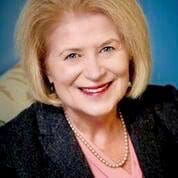Search Posts
Recent Posts
- Vinny Paz to be inducted TODAY into the International Boxing Hall of Fame – CES Boxing June 7, 2025
- In the News… quick recap of the week’s news (6.7.25) June 7, 2025
- Burn with Kearns: Strong without the spend: How scraps became strength tools – Kevin Kearns June 7, 2025
- Rhode Island Weather for June 7, 2025 – Jack Donnelly June 7, 2025
- How to advocate for threatened properties: The Heritage Alliance of Pawtucket June 7, 2025
Categories
Subscribe!
Thanks for subscribing! Please check your email for further instructions.

A Decision Must be Made
By Mary T. O’Sullivan
“The thing is – fear can’t hurt you any more than a dream.” – William Golding, Lord of the Flies
In times of fear, crisis and chaos, we instinctively turn to our leaders. What we are seeking are answers, a smart analysis of the facts that helps leaders direct us to the “right” choice. Recent research conducted by Harvard Business Review shows that judgment “is the core of exemplary leadership”. Yet, in the literary classic, Lord of the Flies, William Golding presents the dichotomy of human judgment, the conflict we humans experience with living by the rules of society, in peace and in collective harmony, or crumbling into social Darwinism, survival of the fittest and natural selection. Lack of survival becomes the fear.
Social Darwinism can explain our plundered store shelves, the herd immunity policies, and the desire to abandon the “shelter-in-place” mandate in order to jump start our economy, therefore, sacrificing society’s most vulnerable so the rest of us can go back to work and secure the stock market’s upward movement. Fear of want can make us greedy. It’s interesting to note that during the “Gilded Age” of the late 1800s, the concept of Social Darwinism became easily adapted into upper class Western society, a trend which believed social Darwinism to be a laissez-faire approach toward capitalism, immigration, the public’s health and well-being, as well as many other social challenges of the day.
Back to the classic novel, the protagonist in Golding’s Lord of the Flies, Ralph assumes leadership, but struggles to keep peace and harmony while stranded on a deserted island. He and his supporters attempt to establish democracy through rules and assigned roles. Disorder and disruption surface when their signal fire extinguishes, just as a potential rescue ship passes the island. The boys responsible for the fire abandon their posts and decide to join another groups’ hunt. The two groups quickly become enemy tribes, and throughout the rest of the book, the boys’ behavior becomes ever more violent and vicious. Fear of one another runs rampant through the two camps. The conflict between social order and social Darwinism, survival of the fittest, destroyed the harmony and collaboration on the island. The essential needs for staying alive, cooperation and collaboration were ruined. The strongest leader, the leader of the hunt, Jack, set the tone, transforming all the boys into near savages.
Without strict guidelines for social order and leadership that protects us, we easily begin to metamorphize into people we hardly recognize. Our baser nature emerges. And it feels so natural, so easy. Who’s watching? Who’s going to stop us? Equitable access to society’s essential needs lessens by whomever gets into the grocery store first. We want to ensure that we don’t run out, everyone else can fair for themselves. Shopping hours for the elderly are ignored, lines of people of all ages clog entrances, leaving many elderly standing out in the early morning cold. Crowds appear on the beach, in parks and trails. Spreading the virus appears to be of no concern. Maybe it’s all due to the disinhibition of social media that has made us less considerate and caring. Maybe human nature’s darker side emerges in a crisis. Is it our karma? According to the International Journal of Forensic Mental Health, a survey of financial leaders discovered that they scored high on antisocial traits and lower than average in emotional intelligence. These are people under constant stress, willing to do whatever it takes to come out on top.
We’ve learned through this pandemic that many bad judgment calls were bound to happen, simply because important options, and the risk of their potential consequences, were never given enough serious thought. The leader’s team needs to be able to present the full range of options with open debates on the best way forward. When the leader relies heavily on his/her own instinct alone, judgment is colored, important facts are ignored, and society can only rely on best guesses. Can we be governed by speculation, conjecture, feeling? Or do we follow our better judgment, our more noble nature? Who’s watching our signal fire? Who’s calming our fears? “Leaders need many good qualities but underlying them all is good judgment.” Harvard Business Review Now, who can argue with that?

Connect with Mary
mary@encoreexecutivecoaching.com
www.encoreexecutivecoaching.com
401-742-1965
Mary T. O’Sullivan
Mary O’Sullivan has over 30 years of experience in the aerospace and defense industry. In each of her roles she acted as a change agent, moving teams and individuals from status quo to higher levels of performance, through offering solutions focused on changing behaviors and fostering growth.
Mary has a Master of Science in Organizational Leadership from Quinnipiac University. In addition, she is also an International Coaching Federation Professional Certified Coach, a Society of Human Resource Management Senior Certified Professional and has a Graduate Certificate in Executive and Professional Coaching, from the University of Texas at Dallas.
In her leadership and executive coaching, she focuses on improving the executive behaviors that slow down performance and lead to growth, such as soft skills, communication, micro-bias awareness, etc. She has successfully helped other professionals, such as attorneys, surgeons, pharmacists, and university professors, make career decisions to lead to success in their chosen careers. In addition, small business owners have sought Mary’s services to bring their companies into greater alignment, working on their culture, vision, mission, values and goals as well as organizational structure. Mary’s executive coaching has been mainly with large organizations among them: Toray Plastics America, Hasbro, Raytheon Company, Lockheed Martin, CVS Healthcare, Sensate Technologies, Citizen’s Bank, Ameriprise, BD Medical Devices, Naval Undersea Warfare Center, (Newport, R.I.), General Dynamics, University of Rhode Island, Community College of Rhode Island, etc.
Mary has facilitated numerous workshops on various topics in leadership such as, emotional intelligence, appreciative inquiry, effective communication, leading in adversity, etc. She has also written extensively on similar topics.
Mary is also a certified Six Sigma Specialist, Contract Specialist, IPT Leader and holds a Certificate in Essentials of Human Resource Management from the Society of Human Resources Development. Mary is also an ICF certified Appreciative Inquiry Practitioner, and a Certified Emotional Intelligence assessor and practitioner.
In addition, Mary holds a permanent teaching certificate in the State of New York for secondary education with Advanced Studies in Education from Montclair University, State University of New York at Oswego and Syracuse University. She is also a member Beta Gamma Sigma and the International Honor Society.
Mary dedicates herself to coaching good leaders to get even better through positive approaches to behavior change for performance improvement.
